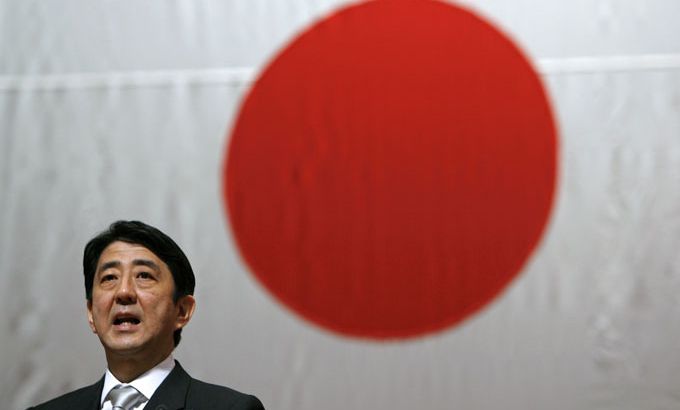
Is Japan’s sun rising again?
As Shinzo Abe consolidates his grip on power, we ask whether he can revive the world’s third-largest economy.
Japanese Prime Minister Shinzo Abe’s ruling coalition has won a solid majority in upper house elections. The bloc now has control of both chambers, handing Abe a strong mandate to press ahead with economic reforms.
It sets the stage for Japan’s first stable government since 2006 and marks an end to what has been called a ‘twisted parliament’ in which no party was dominant.
What has happened this evening basically has reinforced the message that was delivered in December of last year, that the people of Japan - not all of them, but at least a significant number - want to have some kind of predictable government - even if it is not a government that they fully want; nevertheless a government that can take action.
That had hampered policy-making, and led to a string of ‘revolving-door’ leaders – a total of seven prime ministers in seven years.
The ruling bloc’s landslide victory may have consolidated Abe’s grip on power, but a low voter turn-out suggests a wider dissatisfaction with the state of Japanese politics and the lack of a credible opposition.
And Abe’s stated aim to revise the pacifist constitution which says Japan ‘forever renounces war’ is causing concern at a time of tense territorial disputes.
Shinzo Abe said: “The Japanese people have given us their strong support and we’re very grateful for that. Regarding our economic policy, we intend to continue with that policy as swiftly as possible. The twisted parliament has ended and what is being asked of us is that the LDP shows its strength and proceeds with its economic policies so that the Japanese people feel the benefit of that.
“In terms of the revision of the constitution, we will be negotiating that, but we will need to have more than 50 per cent of the support of the Japanese people in order to change the constitution. So we still need to work on this and before that we would like to create a stable political situation.”
Japan’s pacifist constitution prohibits the use of force, except for self-defence. It was drafted by US occupation forces after Japan’s defeat in World War II, and has never been altered.
Article 9 of the constitution states: “The Japanese people forever renounce war as a sovereign right of the nation and the threat or use of force as means of settling international disputes.”
The constitution effectively forbids Japan from maintaining an army navy or air force, referring to its armed forces as the Japan Self-Defence Forces – something that has long divided the nation.
So can Shinzo Abe revive the world’s third-largest economy, and how will plans to revise Japan’s pacifist post-war constitution resonate with regional neighbours?
Joining Inside Story, with presenter Mike Hanna, is Michael Cucek, a research associate at the MIT Centre for International Studies; Rajiv Biswas, a senior director and Asia Pacific chief economist for IHS Global Insight, and Yuki Tatsumi, a senior associate of the East Asia programme at the Stimson Center.
|
“The public did not give this victory to Abe and his government for its foreign policy and security policy agenda. They really want this government to revitalise its economy and put them back on a solid recovery path, so the Abe government really has to take action. In a sense this government lost excuses that they cannot do this thing or that because of [a] twisted diet so now the public will very much watching what kind of concrete action is coming out of this government to improve their lives frankly.” – Yuki Tatsumi, East Asia programme at the Stimson Center |